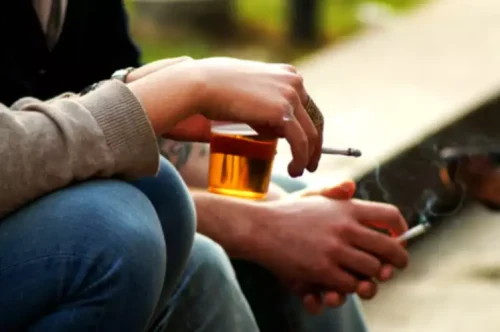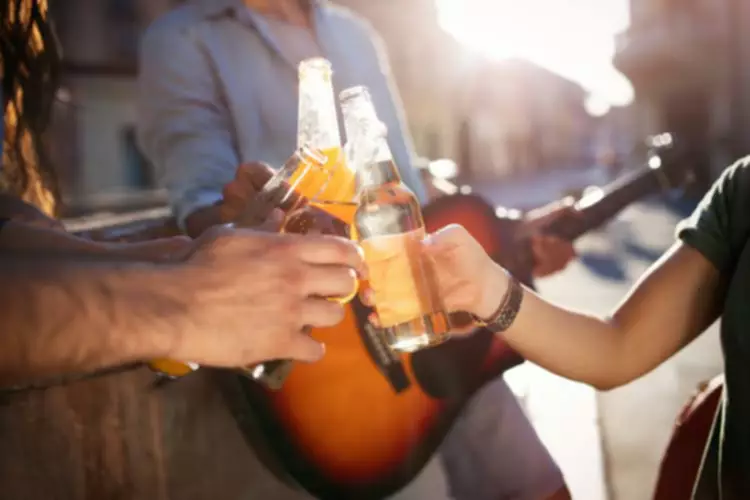
It explains why the stories and experiences of others will result in a pattern of marijuana addiction substance abuse, even when the teen has received treatment. CBS News provided one tip that chronic relapses must recognize that they cannot use willpower alone to combat their addiction. Just as 12-step programs say, the report mentions that surrendering can be much more helpful than the stress of trying to stop your cravings on your own. Yes, medications such as naltrexone, acamprosate, or a combination of both have shown to be effective in preventing alcohol relapse. Naltrexone demonstrated better outcomes regarding time to first drink and relapse compared to acamprosate in clinical trials. The combined naltrexone and acamprosate treatment was the most effective.
Alcohol relapse is a part of the process
For people with longer-term recovery, outsiders can see more clearly the behavioral changes and warning signs that coincide with relapse, like someone suddenly disappearing from their home-group Twelve Step meeting. For a fuller list of behavioral changes, see the warning signs listed below. In summary, stress in many cases may play a causal role in the initiation of treatment. This role, however, probably is moderated and mediated by numerous factors, including a drinker’s resources, social pressure, problem-solving skills, and coping https://ecosoberhouse.com/ strategies (Finney and Moos 1995).
How to Identify Your Triggers
Even if you don’t understand why you’re feeling like this, you can at least recognize that these people have been there for you in the past and deserve your transparency. If you find yourself rejecting your friends and family, it can be a sign that you’re preparing to relapse. Rely on your support systems, and don’t try to white-knuckle your way through it. If you are experiencing extreme overwhelm and hopelessness right now, you are at risk of relapse. Even though it runs contrary to EVERYTHING you’re feeling right now, reach out to your support systems, even if you hate all of them. Drinking is not going to solve any of these emotional problems.
Emotional relapse
Research shows that alcohol and opioids have the highest rates of relapse, with some studies indicating a relapse rate for alcohol as high as 80 percent during the first year after treatment. Similarly, some studies suggest a relapse rate for opioids as high as 80 to 95 percent during the first year after treatment. Other substances with notoriously high relapse rates are stimulants and benzodiazepines. Stressful experiences also can contribute to the reinstatement of AOD use after a period of abstinence in animals with a history of AOD self-administration.
- This will allow you to figure out what you can do in the future to prevent yourself from experiencing another lapse.
- Alcoholism is defined as a chronic condition that is the most severe version of alcohol abuse.
- Whether you are seeking intensive outpatient care or simply need guidance on your mental health journey, we are here to help.
- Be mindful of how deeply ingrained their relationship with alcohol is and never forget how far they have come.
- It is difficult, however, to separate the effects of such specific stress-reduction techniques from the effects of other effective treatment components.
How common are relapses?

This definition of recovery allows for relapse to be seen as part of the process of recovery. Using either alcohol or another mind-altering drug would be a slip or relapse. In this definition of recovery, either complete abstinence from all mind-altering substances or strict abstinence from your “drug of choice” is required. Being sober is an alien and uncomfortable sensation for the newly recovering addict. Even those with many years of sobriety behind them experience an intense longing for the escape offered by alcohol from time to time. By Buddy TBuddy T is a writer and founding member of the Online Al-Anon Outreach Committee with decades of experience writing about alcoholism.

Accordingly, treatment modules teaching problem-focused coping skills may be an important component of effective therapy for some AOD-abusing clients. While one drink may seem harmless, technically, for people in recovery from alcohol use disorder, consuming even a single alcoholic beverage is considered a relapse. It is considered a relapse because, in addiction recovery, Alcohol Relapse it’s important to understand that addiction is a chronic disease where any return to substance use can potentially trigger a full regression into destructive drinking patterns. One drink can quickly lead to much more, which is why one drink or even one slip is not recommended for anyone in recovery. An estimated 85% of people with alcohol or drug-related addiction issues relapse within a year after starting treatment.

” If the answer to these questions is no, it might be time to take a step back and practice self-care. You might also want to share your feelings with a support group or counselor. A relapse typically doesn’t occur as a spur-of-the-moment event. Understanding these stages and what to do when they appear can help stop a relapse before it takes effect. Some people find that certain smells, music, or even words trigger them to think about drinking.
Residential Drug and Alcohol Rehab In Indiana
- Relapse can be averted if friends or family members intervene and convince the person to go to recovery meetings or alcohol counseling.
- Relapse is something that can but doesn’t have to be part of the recovery process.
- If you think about what to do about a lapse or a relapse before it happens, it may be easier to deal with.
However, a slip or relapse does indicate that something is missing in your recovery plan or resources. The most common cause of relapse is being a recovering alcoholic! Triggers such as an emotional upset or unpleasant event may seem to cause a relapse. However, alcoholism, like any treatable disease or disorder, will resurface unless treatment is ongoing, in some capacity. Therefore, a key aspect of recovery is identifying potential triggers and risk factors and avoiding them as much as possible. At this stage, working toward avoiding triggers or high-risk situations in which relapse could occur is critical.
What is the impact of peer support on relapse prevention?
- Humans are woefully good at filtering out the bad parts of our memories and focusing on the “good.” You have to force yourself to remember all aspects of your drinking to protect your sobriety.
- You may feel overwhelmed for no apparent reason or unable to relax.
- However, a slip or relapse does indicate that something is missing in your recovery plan or resources.
- Stopping unhealthy levels of substance use, either alcohol or drugs, can be difficult.
- We understand how hard it can be to see someone you love relapse after all the progress they have made and at times it may seem as if it was all for nothing.
Relapse prevention is a primary concern in addiction treatment and addiction recovery. You can take steps to prevent both slips and the progression toward potential relapse both with the help of professionals and on your own. These circumstances can lead to a relapse of drinking at the level before you entered treatment. Relapse can affect your recovery journey, but returning to a problematic level of alcohol use suddenly is also dangerous because your body may have lost tolerance. You may be at significantly higher risk of alcohol poisoning and other acute health issues. A reported 40-80% of individuals who have received treatment for alcohol use disorder have at least one drink within a year of treatment completion.3 This single drinking event qualifies as a slip.
If you’ve experienced an extended relapse, you’ll likely benefit frommedical detox, where any withdrawal symptoms are managed under medical supervision. Once your doctors in detox have made a full assessment of your condition, they will be able to recommend whether or not they think you would benefit from going back to rehab. Likewise, if you have not previously completedalcohol rehabafter alcohol detox, you should consider this as a way toincrease your chances of long-term sobriety.
